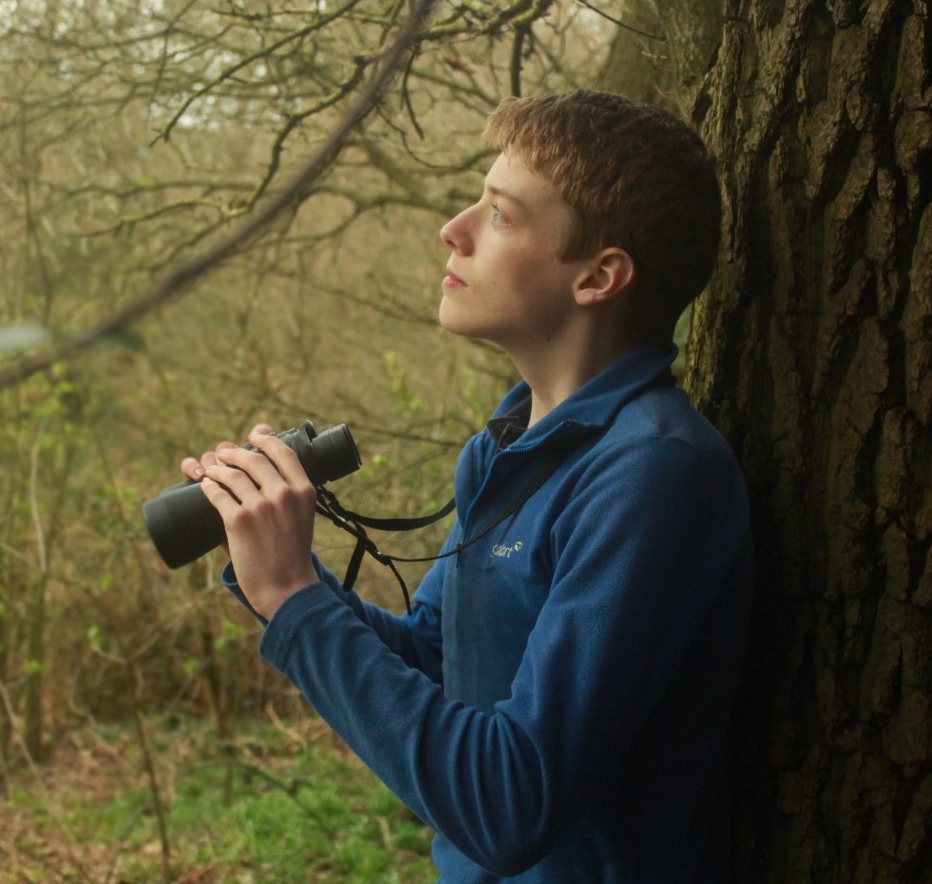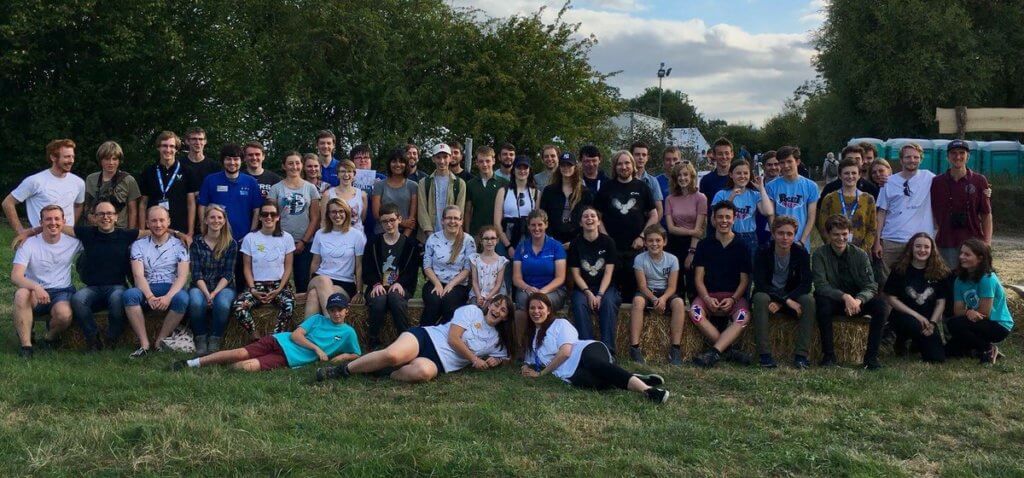
James Miller is a 17 year old aspiring nature presenter and advocate for nature. He makes short documentaries about various species and issues, hoping to inspire his generation to appreciate wildlife and take action against its decline.
Twitter handle: @JamesNaturalist
A couple of weeks ago, I turned 17. Suddenly I was legally allowed to drive, give blood, and even pilot a helicopter, believe it or not.
Being already past the age at which most will consider you a child and fast approaching the legally defined age of adulthood, I felt a little wistful. It wasn’t simply the typical nostalgia for childhood days, but as a passionate conservationist and campaigner, I also felt that the extra influence that accompanied my youth was waning, and that, to be brutally honest, I hadn’t made full use of it.
Although this may sound like a pessimistic and unnecessarily gloomy way to look at things, you can see where I’m coming from – young people have a significant advantage in some ways when it comes to influencing change.
Firstly, they’re seen as without ulterior motives, whether political, financial or otherwise. They speak out about an issue simply because they believe that it is right. In fact, further, children are often viewed as the embodiment of purity and innocence (although if you’ve got a younger sibling I’m sure you were disillusioned pretty quickly). This means that they are hardly ever interpreted as having views that are extreme or radical, and therefore media outlets are happy to give more airplay of their opinions, which might otherwise be deemed too controversial.
The popular misconception that teenagers are lazy, rude and completely apathetic to the world around them in fact helps us too; people are so pleasantly surprised to see us put time and effort into making the world a better place that it becomes newsworthy, and people especially want to encourage it.
In short, if a child takes a stance against an institution, government or project, then that can be hugely dangerous for the organisation. If a child supports anorganisation, then that can be one of the most valuable assets that the organisation has.
Although they have this natural advantage, this is nothing to take away from the achievements of young people – there are so many who are doing fantastic things that would be inspirational even if they were 30 years older. I know of so many impressive teenagers even just within the conservation sector, far too many to list, but a lot of them can befound on A Focus On Nature’s website if you’re interested. Each has their own special area of interest, expertise and skill.

Hats off to those people and organisations that are giving them a leg up (and on that note, thanks to Mark for inviting me to write this article for his blog) but I do strongly feel that the role of young people in campaigning is undervalued, and that there is the potential for so much more to come out of it.
I think we need to increase youth representation at political events, as with the climate summit this year where 15 year old Greta Thunberg stole the show. Making short videos, narrated and, if possible, created fully by young people, designed to be easily shareable on social media and within politician’s time constraints, could also have a huge impact. For example, earlier this year some young naturalists, myself included, banded together to make a short film to promote Chris Packham’s Walk for Wildlife, which reached quite a wide audience and hopefully encouraged more families to go along. Charities and NGOs could also give greater visibility to young volunteers who are already doing a lot to help them.
So what does the future hold for me? I’m going to try to maximise my last few years at school. I’m going to focus more of my spare time on film-making and presenting, which is what I’m hoping to move into as a career, and use that both to inspire more young people to take an interest in the natural world and to raise awareness for some of the threats that it faces. I’m going to try to actively pursue opportunities to write articles and speak publicly about issues that I feel strongly about, rather than hope to be presented with them. I’m going to become more politically active, and make myself a familiar face with my local MP rather than just spam them with emails about badgers (although rest assured I’ll still do plenty of that).
I’d encourage any other young people in the same position to do the same, because you have far more power than you might realise, and the world needs your contribution now more than ever.
On Chris Packham’s people’s walk for wildlife, to me the highlight was the speeches of the young people. I’ve followed the climate change problem for over 30 years and have tried to make the case for addressing it. However, in all that time I have never heard anyone encapsulate the problem with the clarity of Greta Thunberg. Every other person who has spoken on the issue, I have found fault with some of their analysis, yet never with Greta Thunberg’s analysis of the problem. Accurate approximation, and cutting through the fog of obfuscation is a rare skill. I’m not young and am approaching 60. My own “environmental awareness” happened when I was 10, and land I’d got to know was being developed, and no one would listen to what was being destroyed.
Re no one listening to you when you were a kid worried about a development it made me remember in 1976 when I was 9, one relative responded with a derisory laugh and another exclaimed ‘don’t be so silly!’ when I was horrified at scenes of the Amazon being bulldozed in a pro development documentary we were all watching. I believe the specific project highlighted turned out to be a failure a few years down the line. I suspect many ‘kids’ with an interest in wildlife develop a very good perspective on life (in my case nations are just made by imaginary lines, nature transcends them and sectarianism is for idiots) better than our ‘peers’, but we paid a wee price for it. Excellent and hope inducing article from James.
Thanks very much Les. I hope and believe that national and global attitudes have shifted since that scene that you mention, but in some ways we still face the same problems – many in my generation and others are far less concerned about these matters than they should be, and do consider it silly to have them held as important as the economy.
I’d like to think you’re right about developing a good perspective on life – I think that spending time outside allows us to dedicate some time to reflection, away from distractions of everyday life and business, and properly see our place within the world rather than within the artificial bubble that we have created for ourselves.
Best wishes
James
Thanks for your comment. I know many others felt the same way about the young people’s speeches, and I think that, having become less entrenched in the same recurring phrases and ideas used to describe the problem, than previous generations, it makes it easier for young people to put forward their point in a more original, concise, and to-the-point fashion, as you say – cutting through the fog of obfuscation.
Best wishes
James